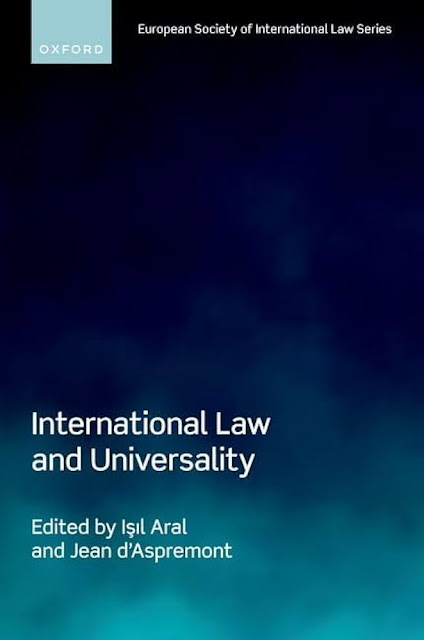This book takes an unflinching look at the roles and functions played by the idea of universality in international legal discourses, as well as the narratives of progress that often accompany it. In doing so, it provides a critical appraisal of the mechanisms of inclusion and exclusion attendant to international law and its universalist discursive strategies. Universality is therefore not reduced to the question of the geographical outreach of international law but is instead understood in terms of boundaries. This entails examining how the idea of universality was developed in the dominant vernaculars of international law - primarily English and French - before being universalised and imposed upon international lawyers from all traditions.
This analysis simultaneously offers an opportunity to revisit the ideologies that constitute the identity of international lawyers today, as well as the socialisation and legal educational processes that international lawyers undergo. With an emphasis on the binaries that arise from the invocation of the idea of universality in international legal discourses, this book sheds new light on the idea of universality as a fraught site of contestation in international legal discourses.
TABLE OF CONTENTS
1. Introduction, Isil Aral, Jean d'Aspremont
THE IDEA OF UNIVERSALITY
2. Gail C Lythgoe, The Spaces of the Universal and the Particular in International Law: Questioning Binaries and Uncovering Political Projects
3. Ekaterina Yahyaoui Krivenko, The Philosophical Problem of Universals and Universality Binaries in International Law: Hobbes and Leibniz Compared
4. Matthew Nicholson, Universalising the Particular; or, Hotel and Carrier Bag
5. Akbar Rasulov, International Legal Universalism: A Reactionary Ideology of Disciplinary Self-Aggrandizement
THE INVENTION OF UNIVERSALITY
6. Onuma Yasuaki, Ishii Yurika, The Assumption, Not Invention, of Universality Is the Problem
7. Frédéric Mégret, L'Invention de l'Universalité du Droit International
UNIVERSALITY AND RIGHTS
8. Mark Retter, Universal Human Rights within Social Particulars
9. Tilmann Altwicker, Human Rights Nationalism as Universality Challenge
UNIVERSALITY AND THE NON-HUMAN
10. Alejandro Lorite, Universalisms of Human Dominion
11. Régis Bismuth, The Universal Recognition of Animal Welfare and its Dark Sides
UNIVERSALITY BEYOND EUROPE
12. Mohammad Shahabuddin, Regionalism, Hegemony, and Universality in the International Order of the Far East
13. Mashood Baderin, Universality in International Law Beyond the European: An Islamic Law Perspective
14. Kanad Bagchi, Milan Tahraoui, Beyond Co-option and Contestation: The Chinese Belt and Road Initiative and the Universality of International Law
UNIVERSALITY AND THE LANGUAGES OF INTERNATIONAL LAW
15. Elisabeth Roy-Trudel, The Power of Images: Questioning the Universality of International Human Rights Law
16. Markus Beham, German 'Dogmatik' - An Untranslatable Concept if Ever There was One?
CRITIQUE AND RESISTANCE TO UNIVERSALITY
17. Maiko Meguro, The Retreat of the State in International Law? The Paris Agreement as a Case Study
18. Zinaida Miller, Oscillating Justice: Between Universal and Particular
19. Andreas Kulick, Conceptual Universality vs Pragmatic Particularity in International Adjudication
Isil ARAL, Jean d’ASPREMONT (eds.), International Law and Universality, Oxford, Oxford University Press, 2024 (352 pp.)

Aucun commentaire :
Enregistrer un commentaire